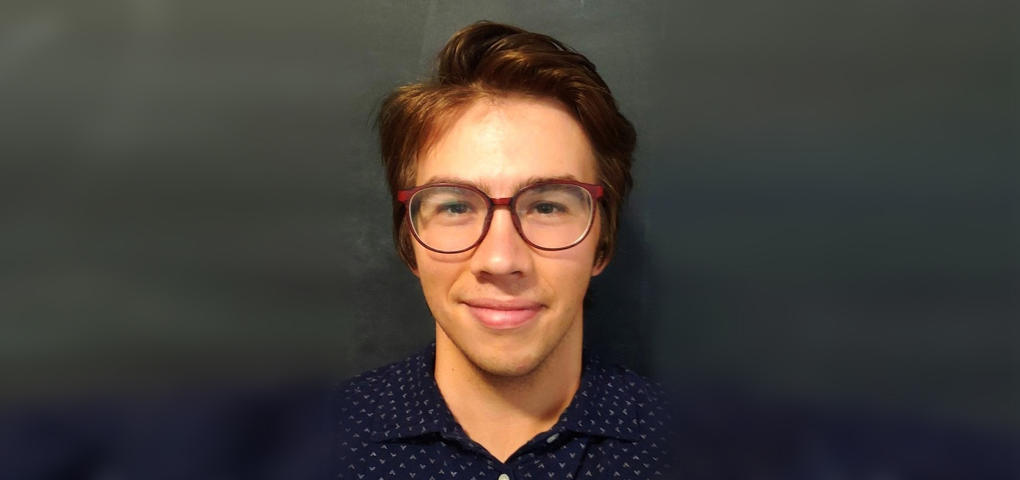
The University of Minnesota and 3M share a deep commitment to boosting the number of underrepresented students pursuing STEM degrees and developing a more diverse and inclusive workforce. In 2017, 3M took this commitment to a new level by making a pledge of $8 million, which included support for a wide range of scholarship and outreach programs that are making a measurable difference.
The 3M Diversity Scholarship in the College of Science and Engineering is one of the key initiatives funded by this pledge, supporting more than 55 students since its launch. We caught up with 3M Diversity Scholar Dominic Marticorena, a senior in the college who is majoring in biomedical engineering, to learn more about his experience at the U and how much the scholarship has meant.
What brought you to the University of Minnesota?
During my senior year of high school, I had to make a choice between the University of Minnesota and the University of Wisconsin Madison. Although Madison had given me a full ride, I really wanted to come to Minnesota because I loved the campus, I knew some of the people who had been in the biomedical engineering program, and I knew the senior design project was more comprehensive and richer with opportunity. However, my dad was a tile installer, who moved here from Chile about 20 years ago, so we never had much money, at least not enough to compensate for tuition. I wrote a scholarship appeal to the U and one of the things they were able to give me was the 3M Diversity Scholarship. That’s why I was able to come here.
What sparked your interest in biomedical engineering?
As a child, I was skeptical of certain claims, especially those related to medicine—such as vaccines being dangerous—that were repeated around my household. I became curious about how something can be provable and what makes people come to these claims in the first place. This interest in rigorous and evidence-based medical science sparked my desire to learn more about the scientific method in general. A combination of my love for math, science, creating, and evaluating and improving the systems around me for the betterment of humanity led me to biomedical engineering. I knew and still know that I want to put in as much work as possible to deliver affordable and effective medicine to all people.
What are some of the projects you're working on as you head into your senior year?
I’m really interested in making medicine and medical devices more affordable. For my senior design project, I’m working with three friends in conjunction with a VP at UnitedHealth on a few medical device concepts. Overall, I hope to work on this project using deeply embedded system design, specifically combining software and hardware in medical devices.
I’m taking a lot of machine learning and AI classes as well. I’m doing my honors thesis on machine learning in the Neuromodulation Research and Technology Lab. There, I hope to learn how to implement interpretable machine learning into backend medicine, neuromodulation in this case. Generally speaking in medicine, an interpretable AI design is critical so that surgeons and practitioners can have communicable reasoning for a diagnosis or prescription given by a program.
What has been the most rewarding part of your college experience?
During my freshman year, I started a student research program, Charosa, which allowed me and other freshmen who were passionate about learning to pursue biomedicine. Since then, we’ve been trying to make sure that the group delivers the best possible experience not just to students interested in biomedical engineering, but to anyone who is interested in medicine or feels their voice isn’t being heard in research. We strive to involve anyone who has the passion, regardless of their training; or the experience, but not the opportunity. We’ve worked on many projects, from a bioreactor to speculative diagnostic device methodologies. It’s been so rewarding to watch others come in and say “wow, I can think of an idea, and I can make it happen.”
What are your plans after graduation?
I’ve been working hard on personal statements and reaching out to faculty at a lot of graduate schools. Specifically, I’m looking for schools with biomedical engineering programs that can provide the human and material connections needed to create a meaningful start-up.
My end goal is to build an organization that combines the diverse knowledge and experiences of partners who can identify a critical problem in medicine and either novelly design or evaluate an existing solution, like a device or infrastructure, to make it more effective and affordable so that fewer people have to suffer. I’d also like to extend the reach of this work to places beyond the U.S. where medical devices are most needed.
What has it meant to you to receive the 3M Diversity Scholarship these last few years?
It has meant so much. The 3M scholarship in conjunction with a few others gave me a full ride. It absolutely enabled me to come here!
But also, there are so many things I’ve done that I’m really proud of that just wouldn’t have been possible. I wouldn’t have started my research group, or met the peers and professors who encouraged me to launch it. I wouldn’t have met my girlfriend. I wouldn’t have had an extremely compassionate and diligent professor who first sparked my interest in biomedical signals and coding. It’s my entire experience. The list goes on and on. I want to thank 3M because they really enabled me to do everything I’ve done.
.subhead { text-transform: none; font-family: neutra-2-text, sans-serif; font-weight: 500; font-style: normal; }